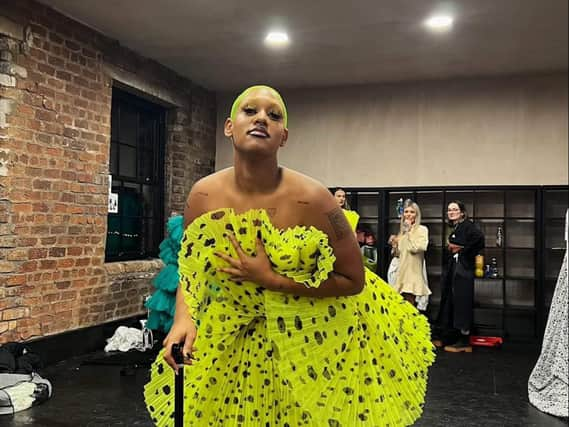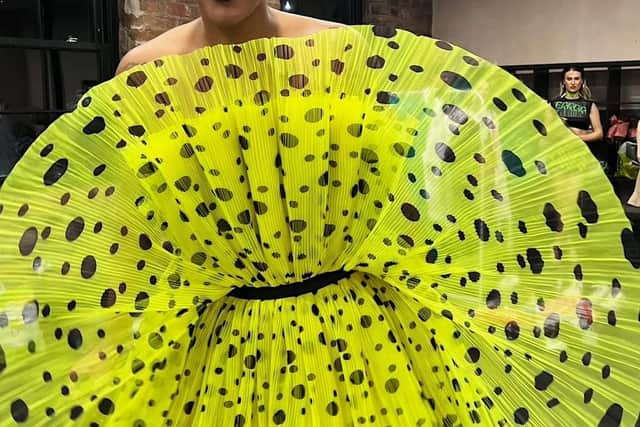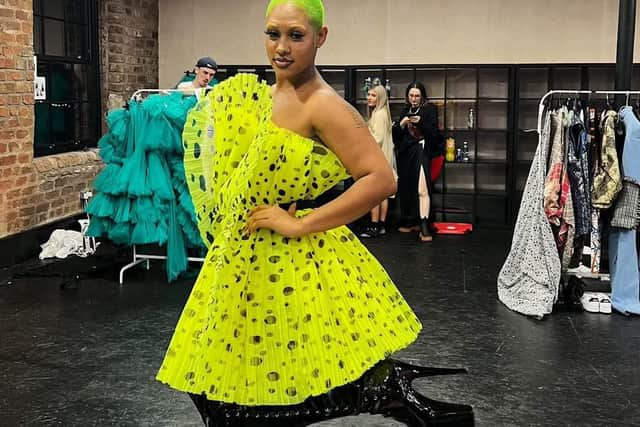American masters student living with terminal illness in Glasgow explains difference in healthcare provision between NHS Scotland and US Mayo Clinic


An American Engineering Masters Student at the University of Strathclyde living with a multi-systemic disease took the time to speak with GlasgowWorld about the difference in healthcare provision between Scotland and America.
Lami Paul, 22, came to Glasgow from New Orleans, Louisiana three months ago for their Masters graduate course in Sustainable Offshore Marine Engineering. Lami has an autonomic nervous system that attacks their own body - which causes a range of conditions which lead to symptoms including extreme pain & nerve damage, digestive issues, problems with blood circulation, and a myriad of other problems for the young American.
Advertisement
Hide AdAdvertisement
Hide AdLami explains their reasoning for moving to Glasgow to complete their degree in Marine Engineering, they said:”I did an undergraduate in Marine Engineering in New Orleans, and of course that’s quite the city.
“I had been planning on trying to move to the UK for grad school and I knew I would prefer Scotland over England.
“But also specifically Glasgow because of everything going on right now with the cost of living - and then of course like the vibes of the city, you know, I’m used to quite a rambunctious chaotic city, and Glasgow’s exactly that.”
Lami was a patient at the Mayo Clinic - commonly acknowledged as the best in specialist healthcare in the US - due to their extensive medical history and has been seeing doctors in Glasgow since their arrival in the city before the start of term in September.
Advertisement
Hide AdAdvertisement
Hide AdFrom a very young age, the Masters student has been handling and managing their own healthcare - which is no small task, managing providers, medication, appointments and much more. She explained their medical experience briefly:”I always tell people, my medical experience is quite a bit different. Through my treatment I was always actively engaging with healthcare providers - researching things and having discussions with these people, almost like they were my colleagues.
“It was definitely more-so like a debate at appointments, it’s funny if you go back in my notes, they will note it like ‘this woman is obviously very smart and knows their stuff.’
“It’s very funny - but then I moved here and now I’m transferring care over here, which has definitely been a learning process. It’s been quite interesting and whatnot but of course you know, experience is experience.”


Lami has to take over 30 medications a day as well as a range of mixed physical therapies to manage the symptoms of their conditions - which include severe neuropathy, gastroparesis, hypocapnia, dysautonomia, MCAS, and various other chronic pain syndromes. She was higher for developing these conditions from their autonomic nervous system ASD alongside Ehler Danlos Syndrome.
Advertisement
Hide AdAdvertisement
Hide AdLami focuses on renewable energy in their Marine Engineering course at Strathclyde - this involves the use, application, and future use of renewable technologies like offshore wind farms, floating solar structure, and wave energy. She hopes to use their knowledge to impact the discussion around climate change.
The soon to be fully qualified marine engineer spoke about the main differences between UK and US healthcare, they said:”Obviously all healthcare systems are particularly slow. It also depends on the provider.
“What I’m finding the most interesting is, depending on what location you’re in, like the NHS vs the United States, they have different clearances for certain medications. So the medication they’ve put me on in the United States, the conditions that I have don’t fly as credible reasons for the same prescription over here.
“So the biggest difference I’ve been noticing is really the core fundamental of how and what is used to treat pain - and of course other things that are hard to quantify in the medical system and are more so on the edge of research.
Advertisement
Hide AdAdvertisement
Hide Ad“They certainly don’t push pharmaceuticals as much as they do in the US, and some doctors are a bit off by the amount of pharmaceuticals that the Mayo Clinic has prescribed me.
“On the other side of things I’ve also noticed in the NHS that the providers tend to be more attentive and that they tend to be a lot more caring of you as an individual. That’s one of the biggest differences.
“I noticed here definitely having a lot less anxiety going to appointments. There’s a lot less steamrolling through appointments from healthcare providers here like there is in the US, you’ve got more of an opportunity to give your thoughts on the treatment.
“I’m still on the NHS path of treatment, but have also had to go do private stuff because of the NHS not being willing to fill certain prescriptions of mine. So, I’ve seen the two sides of that. And of course, I’m more used to what seems like the private experience, because the Mayo Clinic is of that calibre, you know, more so than the NHS experience.
Advertisement
Hide AdAdvertisement
Hide Ad“I don’t think there is an equivalent to the NHS in the States - because healthcare is super, super expensive, which is obviously one of the biggest differences.”
Lami’s conditions will eventually lead to them losing the ability to eat food - and a big part of their treatment is focused on extending their body’s ability to eat and digest food.


She spoke more on how the difference in environment has affected their body, they said:”Coming here and having food that doesn’t have additives and preservatives has been great for me.
“Even the soil in the United States is like dead - synthetic fertilisers which a lot of the time is just repurposed fossil fuels. So our food is always touching, either a carcinogen, a GMO, or an additive.
Advertisement
Hide AdAdvertisement
Hide Ad“I noticed the difference right away that some of my sensory symptoms had become way lessened. I figure it had to have been the cleaner air, the cleaner water and the cleaner food, you know?
“One of the biggest things that me and my doctors discussed was trying to put me in a society that was a bit slower than the United States, which again, comes down to systemic things. It’s like systemically, the United States has such a high working pace and a huge drive for doing things fast.
“Coming to Glasgow and having the ability to socialise with people more easily, and encountering less of that individualism that you find in the US, has had profound effects on my mental health - which is vital for managing my pain symptoms and day-to-day life.
“The people here are all so lovely and kind, and so down to earth. I have mobility issues and have found people are really willing to help me with my backpack or getting up and getting things for me so I don’t have to.
“If anyone has a problem people will stop in the street and listen to them, and are willing to listen and help however they can in that moment, and I think that’s amazing.”
Comment Guidelines
National World encourages reader discussion on our stories. User feedback, insights and back-and-forth exchanges add a rich layer of context to reporting. Please review our Community Guidelines before commenting.
